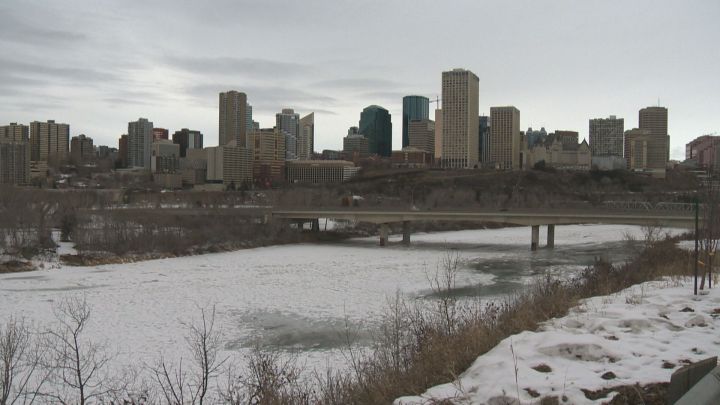The grand chief of Treaty Six First Nations says he is discouraged that an Edmonton city councillor has concerns about naming streets with indigenous words that some people may find hard to pronounce or spell.

Coun. Bryan Anderson said he would like the city’s naming committee to consider pronunciation and spelling when it decides what to name a new neighbourhood, road or park.
“If at some time in the future, hard-to-spell-and-pronounce names like Wikaskokiseyin (Sweet Grass) are proposed for local neighbourhood roads, and become somebody’s address, I hope that the naming committee discusses the potential difficulties that might occur in communicating that address to others, i.e. police, 911, fire, ambulance,” Anderson wrote in an email Wednesday.
Anderson said the committee doesn’t need to bend over backwards to be authentic when selecting names if there is a better alternative.
He suggested the committee could use names when the phonetic spelling is easy to pronounce or use literal translations for streets and neighbourhoods.
Grand Chief Willie Littlechild said not using proper words would show a lack of respect to indigenous people and damage their spiritual connection to the land.
He likened it to forcing children at residential schools to give up their names and culture.
“When we were children and brought to the school the first thing they did was remove your culture. If you had braids they would cut them. If you had a name they took it away and gave you a number. My name for a long time was Number 65,” he said in an interview.
“It really attacks your self identity and self esteem and pride of who you are.”
Littlechild, a former commissioner with Canada’s Truth and Reconciliation Commission on Indian Residential Schools, said it is important to give people an opportunity to reclaim the names of places.
READ MORE: Would you re-name B.C.? First Nations artist wants new name for the province
“I was discouraged that someone would reduce the meaning of our words to be irrelevant.”
Earlier this year the city renamed a section of 23 Avenue to Maskêkosihk (Muss-Kay-Go-See) Trail as part of its commitment to reconciliation with the aboriginal community. The road links the city to the nearby Enoch First Nation.
READ MORE: City of Edmonton shows dedication to reconciliation with road name
Watch below: On Feb. 12, 2016, an Edmonton road was given a Cree name. Fletcher Kent filed this report that day.

Cory Sousa, a city planner who works with the naming committee, said the main criteria for deciding on names is the significance to Edmonton’s culture and history.
“We treat indigenous names like we would any other name,” he said. “We look at the merit of the name.”
Maskêkosihk translates to “land of the medicines” or “people of the medicines.”
In 2014, the city named a new residential area to honour Alex Decoteau, Canada’s first indigenous police officer who competed in the 1912 Olympics.
READ MORE: Edmonton park honouring Canada’s first aboriginal cop inching closer to reality
Sousa said the committee of volunteers is considering naming the five neighbourhoods, streets and parks in the area to honour indigenous people.
Edmonton Mayor Don Iveson said using indigenous names acknowledges that the original language of the area was different.
“The act of naming, using indigenous names, not in anglicized ways, is a significant act of reconciliation and decolonization,” he said.
Other Prairie cities have named streets and parks to honour their indigenous heritage.
Winnipeg has Salteaux Crescent and Cree Crescent among others and is considering a request from people in the North Point Douglas neighbourhood to rename Rover Ave. to Migizi Ave. — the Ojibwa word for eagle.
Saskatoon has Louis Riel Industrial Park and Chief Darcy Bear Park. Students at schools in the city are proposing that some streets be named after indigenous words.
One student suggested rispay, a Metis word for respect. Another student wrote to the city to propose that a street be named amisk, the Cree word for beaver.
“I think that this word brings us closer to our culture and to our past,” wrote Amelie Sarauer.
“The word amisk would be a great street name that reflects the beavers along the South Saskatchewan River in the morning.”
— With files from 630 CHED.



Comments